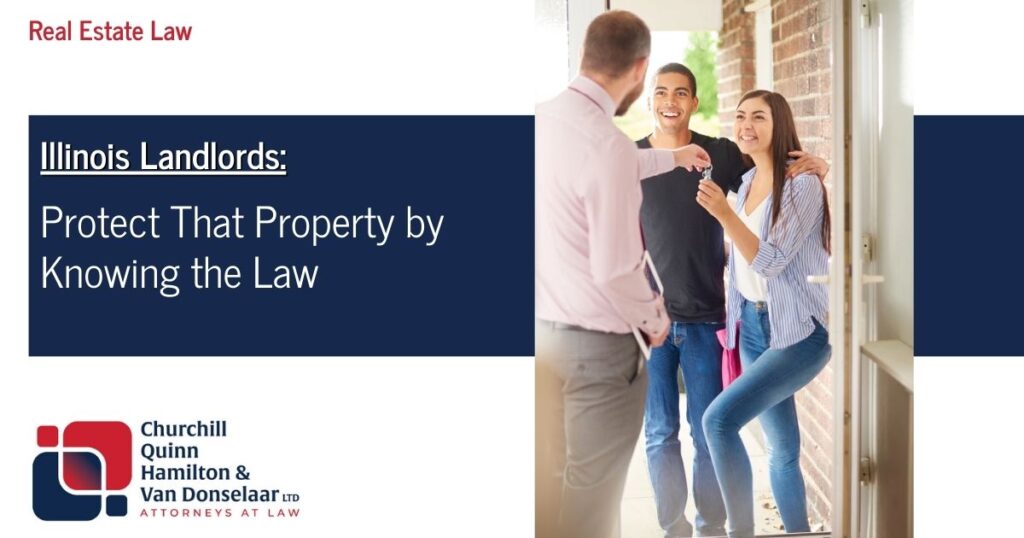8 Crucial Legal Considerations for Landlords in Illinois

Being a landlord can be lucrative and rewarding. But it also comes with many legal responsibilities and considerations that can be complex to navigate. In the state of Illinois, landlords must adhere to specific laws and regulations in order to keep their tenant arrangement legally compliant. Therefore, understanding these legal obligations is crucial in order to maintain a successful landlord-tenant relationship and avoid potential legal disputes.
Illinois Landlord and Tenant Act
The Illinois Landlord and Tenant Act outlines the rights and responsibilities of both landlords and tenants. Landlords must comply with this act to ensure they are not in violation of the law. Becoming familiar with the provisions of this act is essential for conducting business in a legal and ethical manner.
Lease Agreements and Disclosures
Landlords in Illinois must provide tenants with a written lease agreement that includes essential details such as the duration of the lease, rent amount, and any rules or regulations specific to the property. Additionally, they are required to disclose specific information, such as the presence of lead-based paint, to tenants as per federal law. Changes to a lease should always be agreed upon in writing, in order to avoid uncertainty and to protect your rights in the event of a disagreement.
Security Deposits
Illinois law regulates the handling of security deposits. Landlords are required to provide tenants with a written statement detailing the terms and conditions related to the security deposit. Furthermore, they must return the security deposit within a specified timeframe after the termination of the lease, minus any lawful deductions for damages or unpaid rent.
Maintenance and Repairs
Landlords have a legal obligation to ensure that the rental property is maintained in a habitable condition. This includes providing essential services such as heat, water, and sanitation. Promptly addressing maintenance requests and ensuring the property meets local building codes are critical to upholding this legal requirement.
Eviction Procedures
In the unfortunate event that eviction becomes necessary, landlords must follow the specific legal procedures outlined by Illinois Eviction Law. This includes providing tenants with proper notice and adhering to the required eviction process. Failure to follow these procedures can lead to legal consequences and delays in the eviction process.
Discrimination Laws
When it comes to tenant selection, landlords must adhere to the Fair Housing Act, which prohibits discrimination based on factors such as race, color, religion, sex, national origin, familial status, or disability. Understanding and complying with these laws is crucial to avoid legal repercussions and maintain a fair and inclusive rental process.
Insurance and Liability
Obtaining the appropriate insurance coverage, such as landlord insurance and liability insurance, is essential for protecting both the property and the landlord’s assets. Adequate insurance coverage can help mitigate financial risks associated with property damage, liability claims, or unexpected events such as natural disasters.
Local Regulations and Ordinances
In addition to any state or federal laws, landlords should also be aware of any specific local regulations or ordinances that may apply to their rental property. These can include zoning regulations, property maintenance codes, and rental licensing requirements. Staying informed about these local laws is essential for ensuring compliance with all relevant legal obligations.
Illinois Landlords Should Always Work With a Trusted Attorney
As demonstrated above, there are many laws in place to protect both landlords and tenants. Understanding and following these laws is essential to be successful as a landlord. The team at Churchill, Quinn, Hamilton & Van Donselaar, Ltd. can help to protect your investment and ensure a successful experience as a landlord. Our experienced attorneys work with landlords to help enforce the terms of their lease agreements and can represent them all the way through litigation if necessary. Contact us at 847-223-1500 for additional information or to schedule a consultation.
